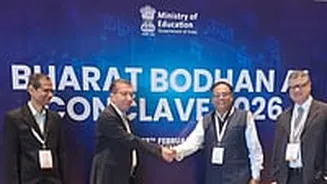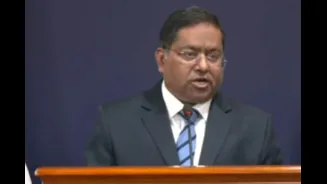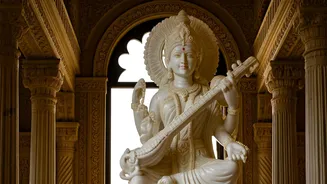Oh My God! Online Money Gaming (OMG) platforms are banned in India. With the passage of TPROG, the government now wields a legal stick against India’s
online money gaming ecosystem. The stakeholders of the OMG industry see this as a death blow to a business model that was just taking shape. Their argument: regulate and tax the sector instead of banning it, which could in turn bring the exchequer handsome GST revenue. But beyond the industry’s outcry and the government’s stance, there are deeper issues to consider.
What Modi and Vaishnaw Say
After the Bill’s passage, Prime Minister Narendra Modi took to social media to shape the narrative: “This Bill, passed by both Houses of Parliament, highlights our commitment to making India a hub for gaming, innovation, and creativity. It will encourage e-sports and online social games, while protecting society from the harmful effects of online money games.”
IT Minister Ashwini Vaishnaw echoed the sentiment in Parliament. Between revenue and safeguarding youth, he said, the Modi government chose the latter. He assured that e-sports and training-based online games — such as chess — will thrive, alongside educational and community-oriented games. The only category to face punishment: online money gaming.
The Business at Stake
The numbers are staggering. Of the 155 million daily online gamers in India, 110 million engaged with OMG platforms. Quoting a FICCI-EY study, Ramaprasad Murali of Times of India wrote: India’s gaming sector is worth Rs 32,000 crore, with OMGs accounting for Rs 27,000 crore. OMG platforms also generated USD 600 million in ad revenue during FY 2024.
The Industry’s Argument
In an opinion piece published in News9Live, entrepreneur Rahul Razdan critiqued the new law: Mr Razdan who claimed to have involved in launching an online gaming business, contended that ‘drawing a big, bright legislative line between “money games” and “e-sports” or “social games” reveals more about some unarticulated anxieties & insights than it does about purported public interest.’ He stopped short of criticising the government’s intention when he hinted that the legislation did not carry the voice of public interest.
Even though the government allowed two other categories of online games, the one involving money is the sore point between the government and OMG businesspeople. Industry leaders argue that with regulation — as seen in the US and UK — OMG could have flourished responsibly. Instead, they warn, India risks losing two lakh jobs, while driving users underground.
Leisure and Its Commercialisation
To understand the controversy, one must look at leisure itself. What the OMG enthusiasts hail as fun and freedom, academia studies as “leisure” — a concept shaped by culture. While sociologists and anthropologists studied ‘leisure’ from the prism of communities and societies at large, management schools studied the same from a distinct perspective. Their focus is to study the family spending on leisure and commercialisation of leisure.
Unlike the West, India has witnessed tension in the field of leisure too. Take the case of tribals’ food. For tribals, hunting was once a livelihood; for Britishers and affluent Indians, it was leisure. Did we ever think from the tribals’ point of view when we banned hunting? In hindsight, we hail the decision of banning wildlife hunting. Isn’t it? Jallikattu is another activity of leisure that hit the headlines in the recent past. For Tamilians, it is a leisure, and it has a tinge of valour in it. In large parts of India, majority of leisurely activities have the characteristic of masculinity. Hunting was no exception where men dominated this leisurely activity. Though the West may not acknowledge it, for a large section of Indians, pilgrimages and spirituality is an activity of leisure.
Commercialisation has reshaped leisure everywhere. Cricket, once a gentleman’s game, is now a billion-dollar spectacle with IPL auctions selling players like commodities. The IPL has transformed itself into a successful commercial leisure.
Moral Policing or Witch Hunt?
The OMG enthusiasts raise a fair question: if youth cannot access OMG platforms, will they simply shift to other forms of betting or addiction? Possibility is extremely high. History shows bans rarely eliminate compulsive behaviour. States that ban liquor, for example, do not end alcoholism — they only limit access, hoping to mitigate harm. The same logic applies here.
Over the years, various states have adopted different mechanisms to negotiate issues posing threats and societal harmony. For instance, many states have banned sale of liquor and tobacco near schools. At least, the non-availability of cigarettes might stop a compulsive smoking teenager from smoking during school hours.
It is a common scene in many Indian villages that women organisations tend to oppose the opening of liquor shops by valid licence holders in the vicinity. Their logic is: they cannot stop their spouses from drinking liquor, but availability of liquor next door might make him a drunkard and eventually, it might ruin their family. So, a legal activity of opening a liquor shop is seen as an amoral act by many Indians even to date.
Citing Western models is tricky. Europe has legalised sports betting and even regulated sex work. Men cannot solicit sex which is illegal but women volunteering sex is permitted. A few states in the US have decriminalised recreational drug use. But India’s social realities are different, and a direct transplant of Western policies may not fit.
The Government’s Case
Two concerns underpin the ban. First, many OMGs disguised betting as “skill games” — e.g., wagering on a player’s performance in real matches. Second, financial flows: enthusiasts often ignore where their money goes, opening doors to black money and illegal foreign transactions. Imagine a situation where an OMG company offers a payment gateway with a VPN number registered outside India. The enthusiasts would not bother to check these details.
The Bottom Line
In plain terms, the government hasn’t banned the IPL. It has banned betting on IPL matches masquerading as skill-based OMGs. In that sense, the move may not be ideal, but it is pragmatic.






















